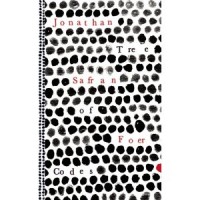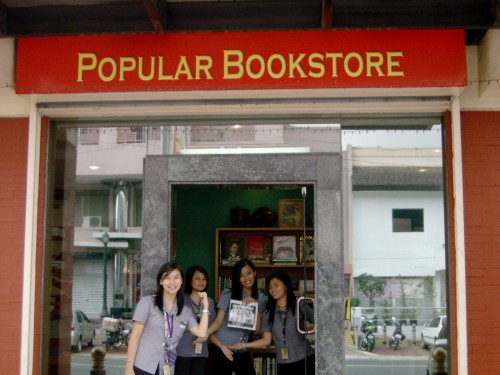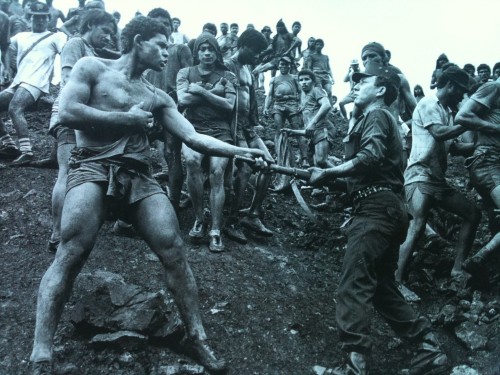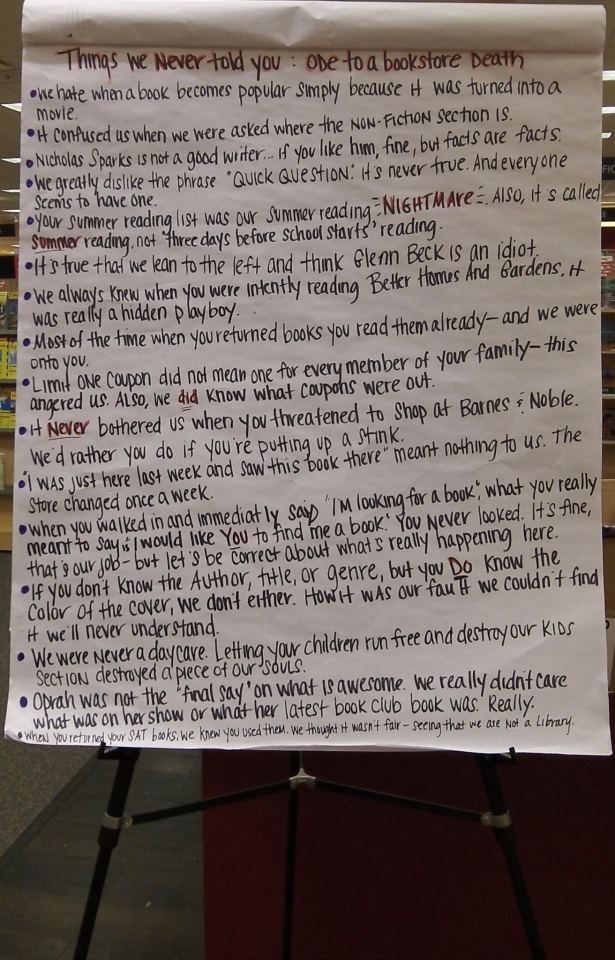“Relationships first, sales second.”
To further the conversation, here are two things about “community” and bookstores that have influenced my thinking on the subject.
First, above, is video of a talk by the amazing Matthew Stadler. In it, he discusses the future of the brick and mortar bookstore. It’s the source of the title for this post.
The second is a short essay from my local alt-weekly, The Stranger. In it, Books Editor Paul Constant takes all the talk of community building and asks someone to go ahead and put up (or rent out) an actual building:
So here’s what we need: a fairly large bar, nothing fancy, not too expensive. Open almost all the time. Maybe a typewriter here or there for ambience. Ratty books on shelves. Some sort of an area that can easily become a stage. Chairs. Tables. No TV, no Wi-Fi. No nattering blogs or flickering videos to distract from the words you’re writing, speaking, or reading. A jukebox stuffed with Edith Frost, the Magnetic Fields, and the Pogues. That’s about it for the hardware.
Both are on the right track, I think.
The Workshop and Measurability

I want to start from the premise that a student can learn innumerable things from taking a creative writing course. Accepting this premise seems to me the only way to get anything done when we talk about pedagogy—otherwise we aren’t discussing pedagogy, but philosophy. I’m most interested in how we can decide what’s teachable out of the huge amount of learning material available in creative writing, and how we can hold ourselves accountable for having taught it afterward.
Taking the most common structure of the creative writing course as a guide, it seems that most teachers have decided on a few central skills that are “worth learning” about creative writing: reading, discussion of reading, writing, and discussion of writing. And the learning we intend our students to get out of practicing these skills is as clear-cut as in the study of any academic field: Reading is important for gaining information and expanding awareness about the field. Discussing reading is important for coming to a more critical and independent understanding of the field. Writing is important for communicating with others in the field. Discussing writing is important for learning to analyze and evaluate writing, with the goal of communicating more effectively in the field. There are of course many other potential purposes for teaching these things, and it’s hard to argue against the learning value of any of them—but I would argue that as teachers, we need to be much more attentive to these purposes, and much more vigilant about providing the rationales that tie them to the study of creative writing as a whole. There’s no inherent rationale, for instance, that reading has to be a part of learning writing—not until you decide what happens during reading that enhances the skill of writing, and how you can structure a class to provide the practice in and measure the acquisition of that skill.
READ MORE >
Tree of Codes
 Tree of Codes
Tree of Codes
by Jonathan Safran Foer
Visual Editions, 2010
285 pages / $40.00 Buy from Powell’s
Rating: [ ].5
Note: This review was written by excising words from Michael Faber’s review of Tree of Codes in The Guardian.
[] [ ] [ ] all-time favourite [ ] [ ] [ ] [ ] Cinnamon [ ], retitled [ ] [ ] [] [ ] [ ] [ ] [ ] translated [ ] [ ] [ ] [ ] [ ] . [ ] [ ] [ ] [ ] passive [ ] [ ] vanity [ ] , [ ] [ ] [ ] [ ] [ ] [ ] [ ] [ ] [ ] [ ] compulsion [ ] [ ] [ ] [ ] [ ]. [ ] [ ] [ ] [ ] love [ ] [ ]? [ ] [ ] [ ] [ ] [ ] [ ] [ ] [ ] [ ] No, [ ] [ ] already done [ ] [ ] [ ] [ ] [ ] [] [ ] [ ] [ ] [ ] [ ] [ ] [] sadly [ ] here. So, [ ] [ ] [ ] [ ] [ ] [ ] [ ] [ ] [ ]fresh [ ]? [ ] [ ] [ ] [ ] [ ] [ ] [ ] dream [ ] mutterings faithfulness [ ] bankroll [ ]?
September 22nd, 2011 / 12:06 pm
slaw
- The Broken Plate is open for submissions until the end of October. This magazine is run by undergraduate students in a literary practicum class at BSU. I can personally vouch the end product as a glow print artifact for holding your words. Think of it this way: service. These are students learning to edit. You could help them along their way. Do send.
- Stoked Press would be, uh, stoked if you would submit. Tyler Gobble likes to wear sleeveless shirts in the spring and you wouldn’t want to bring children to a Layne Ransom reading, if that helps you get mouth-feel for the pub. Submit like a vertebrae.
- The International Algae Competition in Algae Landscape Design is only open until Oct 11! Get growing, I advise. I bet some of you knowledge base hydroponics.
- Hobart needs more stuff about luck. Think of this way: If they accept you, you kick dino-ass. If they blar your work, no worries. It was just bad luck. Here is a pretty epic “wish-list” and I wish more editors would do this, announce what they are thinking, on a rolling level, week to week–I feel it germinates a writer. This list has made me write. I see a future where editors throw out sparks like such as this. Glow.
- Can someone confirm or deny that Brautigan left a suicide note saying “Messy, isn’t it”? It smacks of mean, lazy urban legend and sort of pisses me off.
- Creative Nonfiction would like your “True Crime” stories. All of my favorites are Morrissey songs. No, no, here’s my favorite: I’m a Memphis teenager. I shoplift Pac-man cards. I walk outside the mall and 5 kids surround me, threaten to go exponential on my spleen, rob me, of my stolen cards. Irony? I hate that dumb word. This: welcome to Memphis.
- John Dermot Woods–drawings or words or source material–is bad-ass right here, right now. Just saying.
- Betty has collected 11,020 labels from bananas. In a hundred years, we will know Betty. Us? Never. It makes you wonder.
- Airplane Reading is surprisingly OK, these little flashes about flying on airplanes. They want you. Fly.
- Go right ahead, friend. The entry fee is one dollar, sixty cents.
Why I Hate That Borders Sign

First a note about my perspective. I’m a bookseller. I’ve been a bookseller for almost 12 years. I’ve worked as a floor clerk, in an author events department, in Kids Books, claimed publisher coöp, cashiered, and now spend most of my time behind the scenes writing ads and newsletters and signs.
I know the customers referred to on that sign. I’ve dealt with them, too. I know retail work can be very difficult, and that in the face of a lack of empathy from customers who have never themselves worked retail one can lose one’s own empathy. I also know the folks who come in, ask you to help them look for a book they only have a little bit of information about (a partial title, a remembered book review from a two-month old magazine), follow you to the shelf, pull out their phones, and reward your diligence by scanning the bar code and placing an order through Amazon. Right there. With you watching. READ MORE >
A Critique of Jim Emerson’s Recent “The Dark Knight” Critique
You’ve probably seen by now film critic Jim Emerson‘s critique of a certain action sequence in The Dark Knight (2008). Many, many people forwarded it to me; they probably also forwarded it to you.
Now, I have said many mean things about Mr. Nolan in the past. But I actually disagree to some extent with Mr. Emerson’s analysis. (Maybe I just disagree with everyone?)
So allow me, if you will, to defend my buddy Chris Nolan.



